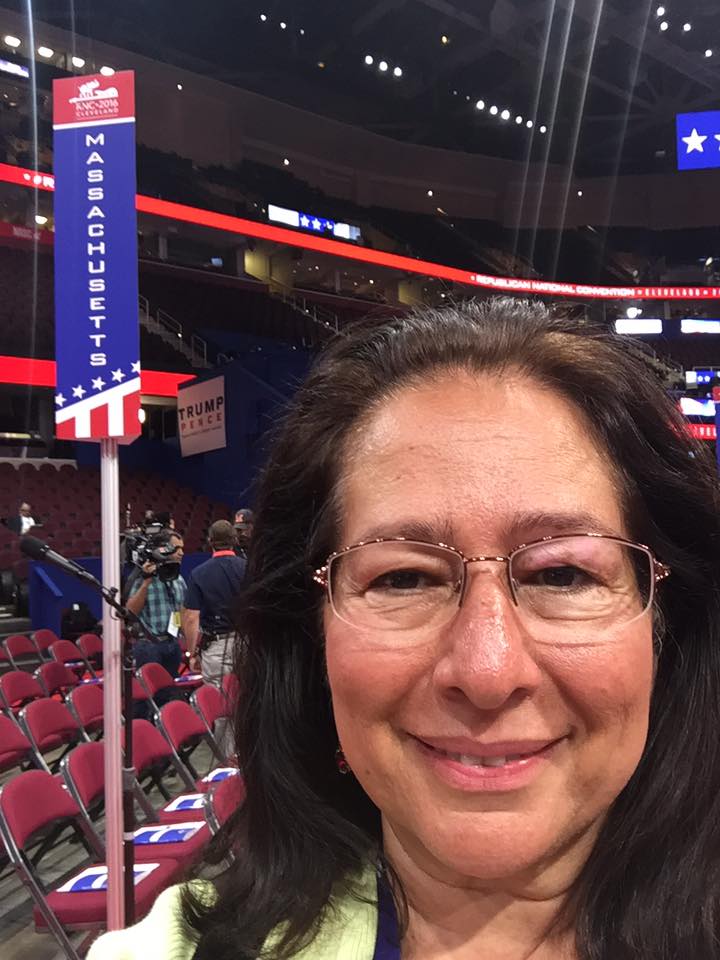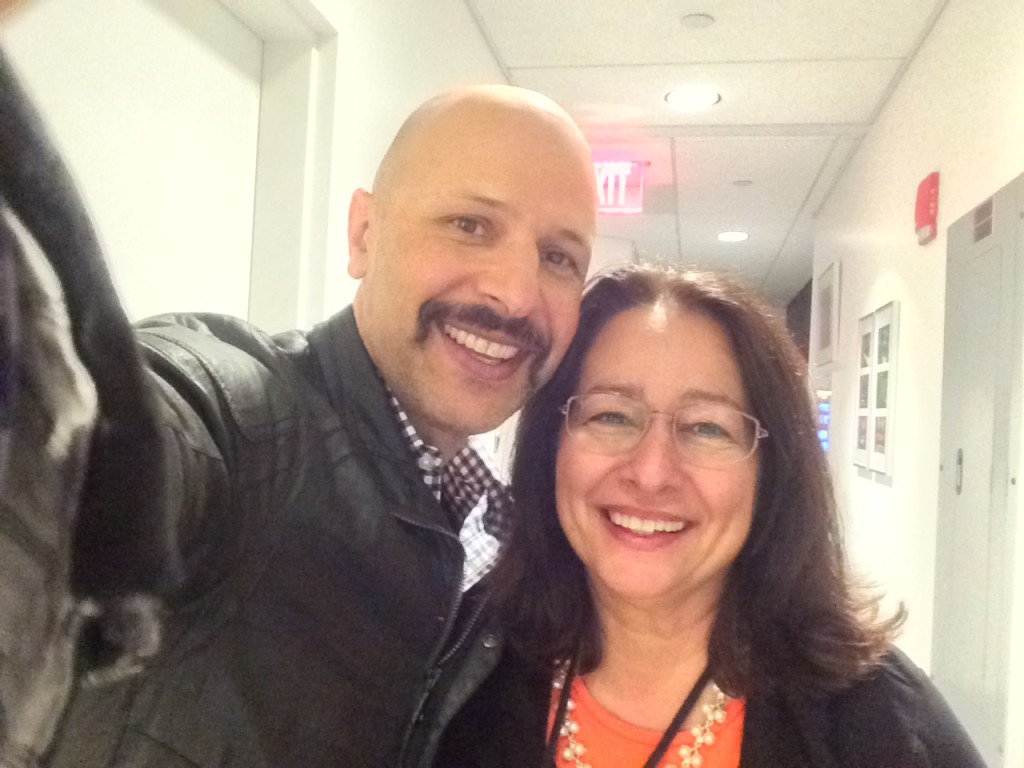Azita Ghahramani: From Zan-e-Rooz to an American Newsroom
Guest blogger Shaz Sajadi introduces us to Azita Ghahramani, a planning editor covering politics, law, business and culture at WGBH News in Boston. Before moving to the US, Azita lived in Russia, Spain and Iran. As a teenager in Iran, her favorite publication at the time was Zan-e-Rooz. Azita says her current job is "the best job in media" because she never knows what topic each day will bring, but does know she gets to meet and interview fascinating people on a daily basis. This feature has been edited for length and clarity.
How did you get into journalism?
When I was really little, I had a dream that I would work for the BBC. I would record myself reading news clips that I had made up in a British accent, because I thought I would be a radio announcer for the BBC. It was probably because my parents always listened to the BBC World News; it was how we kept up with whatever was going on no matter where we lived.
At WGBH, I have a real strong hand in the editorial process. It started as a seed in me as a little kid wanting to do this. However, there was a drought and that seed never got water and nothing ever grew from it. Later in life, I found the place I really wanted to be, which is disseminating information, helping tell people’s stories, talking to different people, learning everyday about new things, and what’s going on in the world. I think my degree in psychology helped too; you’re interested in people basically, and journalism is all about people, right?
Have you been asked to cover news on Iran because you were Iranian?
The only time being Iranian became an issue was even before I went into the news department. When the first Iraq war happened, under the first George Bush, Saddam Hussein was saying things like “This is going to be the mother of all battles.” I remember people stopping me and asking me what he meant, as if I knew, because I was the only Iranian in the whole building. It was as if because I’m from that part of the world, I had better insight into him, and perhaps I did.
I found it interesting, because I got lumped into all of the Middle East. Saddam Hussein was not Iranian obviously, and if he said something, maybe I understood a little about the rhetoric he was trying to use. I understand how language gets used with Iranians and possibly with Arabs, but that’s the only time being an Iranian played a factor. It was interesting because I worked mainly in local news and the rest of the time, you’re typically doing local news and city hall reporting.

Did you ever feel like because you’re Iranian, you have to cover Iran?
I don’t think I did, maybe it was a generational shift. It could also be because I didn’t really grow up there and I grew up in different countries. Even though my family is Iranian and I have a lot of the Iranian culture that I want to maintain and disseminate to some extent, but I don’t necessarily feel in any way that I am an ambassador for Iran.
Personally, I feel like that happens to me everyday. My husband is American. My mother-in-law will read a book and she’ll say: “I read this book and the women in Iran this and that…” I always feel an obligation to tell her that those are simplistic depictions. It’s not really like that, it’s a lot more complex. My mother spends a lot of time in Iran and people ask: “Doesn’t your mother want to come stay here?” As if it’s a given that everybody wants to come live here. I say back: “You know what? In many ways, life there is a lot easier for her than it is here.” She has family there, we have a network of people and everybody watches out for each other. One of my brothers lives in CT, and my other brother is in England. I’m working all the time. When she comes to visit me, she doesn’t even see me. Life in the west is very different from life there. There are a lot of nice things about what life is like in Iran.
Yes, I try to tell people that it’s not all repression and difficulty. There’s a lot of joy too. I have cousins of all ages and I stay in touch with them thankfully through Facebook. There’s so much life and passion among the young people I speak to. I feel very much like an ambassador in a personal way, but not so much in a professional way with the career track I took. Since I don’t cover international news, there’s no chance of me being a middle eastern correspondent working here, unless I worked for “The World.”

Has living in different countries affected your perspective of the news?
I had to go through a whole learning process working in the newsroom here. Working in an American local newsroom, it’s the best education to understand American culture with the stories we cover. Human life has a different value in the US than in a lot of other places. You start to understand the culture by the way the human life is categorized so a police officer, a firefighter and a veteran’s life is more important than a random person who dies. Even less valuable is a person who dies in a drug-gang related death.
When I lived in Spain, you could get into a cab and the average cab driver knew more about Iran or the rest of the world than a college-educated American does. I remember that was a real shock to me when I moved to this country. In the dorms, I talked to people who were high school graduates going into college or in college already, but they knew little about the rest of the world. There really was no understanding and very little curiosity about what happens outside their own communities.
Those are perspectives that I have, because I did live in other countries. It’s also interesting how propaganda works in journalism. I lived in Russia for 5 years when it was the Soviet Union. The perspective that Russians had about America was that if you walk down the streets of New York, you’re going to get shot; that it’s dangerous, full of crime, and bad people. When I came to this country, I realized that during the cold war, people would say the Russians are coming to get us.
So I got to see two different cultures from within and the perspectives each culture had of the other. It made me realize what an impact the news media has on the perceptions we have. During and after the cold war, the media really did perpetrate the idea that Russians and Communism are taking over; that they are infiltrating the west and all of the worst stereotypes about the Soviet bloc. In the Soviet bloc, they spread all the worst stereotypes about living as an American. Interestingly enough, the Russian media is controlled by the government and the US media is not controlled by the government, but the amount of misinformation was still pretty significant, regardless of who controlled the media.
Related Links:
Follow Azita on Twitter: @shirazita
Azita's bio on WGBH News
If you have an interesting story idea, email her at Azitag@wgbh.org.

